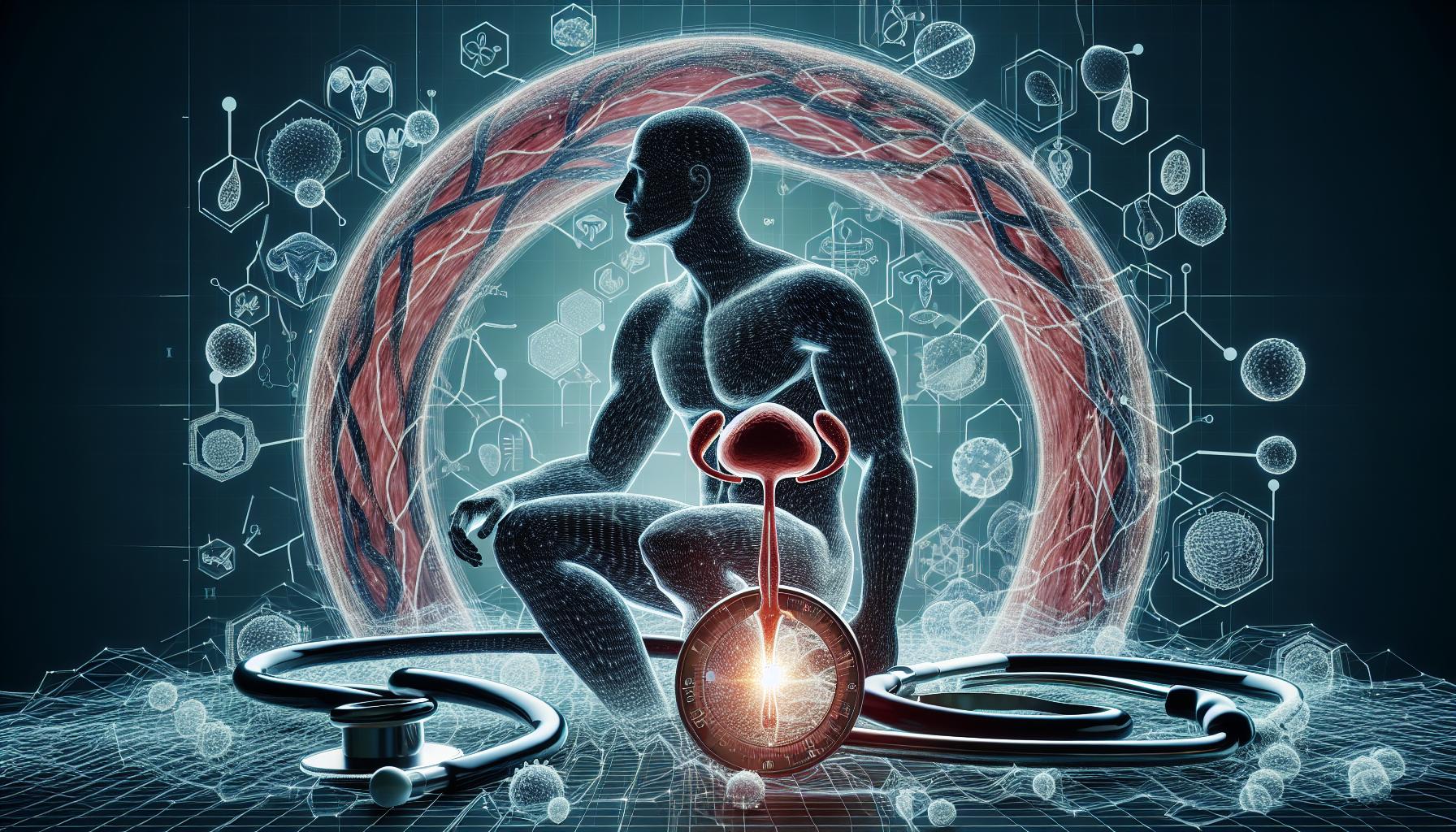Introduction
In the realm of male health concerns, one question often pops up, leaning on the realm of myth, misinformation, and genuine curiosity: Can you feel an enlarged prostate when sitting? To cut through the confusion and offer a clear response, the answer is yes, but it’s not always as straightforward as it seems. A sudden discomfort when seated, especially in the pelvic area, can be an indicator of an enlarged prostate, medically known as benign prostatic hyperplasia or BPH. Nonetheless, it’s just one piece of the puzzle. This article will dive deeper into the subject, unraveling essential details on what an enlarged prostate feels like, why this sensation is associated with sitting, and which symptoms should trigger a visit to the doctor.
Understanding the Prostate’s Role and What Enlargement Means
The prostate, an integral cog in the male reproductive system, is known to grow as men age. This seems natural, yet when the gland swells beyond its regular size, it might trigger a range of symptoms. The enlargement occurs when the cells in the prostate multiply more swiftly than normal, leading to a thickened prostate wall that can constrict the urethra, affecting urinary flow.
Link Between Enlarged Prostate and Discomfort While Sitting
Since the prostate is nestled snugly near the bladder and urethra – and in close proximity to the rectum – an enlargement can exert pressure on these areas, particularly when a man is sitting. This pressure explains the discomfort that some men feel, especially when sitting for prolonged periods.
What Does an Enlarged Prostate Feel Like When Sitting?
Pinpointing the unique sensation of an enlarged prostate when seated can be ticklish. Rather than an explicit sensation emanating from the prostate itself, it often manifests as exacerbation of urinary symptoms. This can include a frequent urge to urinate, difficulty beginning urination, a weak stream, the inability to fully empty the bladder, or discomfort in the lower pelvic region.
Other Symptoms and Factors to Watch
In contrast to the cloak-and-dagger game played by the prostate, other symptoms are more explicit. Any change in urinary habits, blood in urine or semen, painful ejaculation, or any abdominal, groin, lower back, or hip pain should act as a red flag. Also, it’s crucial to consider factors like age and whether BPH runs in the family, both being key contributors to the risk of developing an enlarged prostate.
Importance of Medical Evaluation
Although discomfort when sitting can hint towards BPH, it’s not the smoking gun. To assertively confirm whether an enlarged prostate is the culprit, a detailed medical evaluation is necessary. This typically includes discussions about symptoms, a general physical examination, blood tests, a prostate-specific antigen (PSA) blood test, and a digital rectal examination.
Medical Treatments and Natural Remedies
While treatment strategies are tailored on a case-by-case basis, they can range from “watchful waiting” for mild cases to medication or surgery for severe instances. Meanwhile, natural remedies consist of lifestyle changes like maintaining a healthy weight, exercising regularly, avoiding fluids before bedtime, curbing alcohol and caffeine consumption, and sticking to a balanced diet.
Conclusion
In conclusion, while an enlarged prostate may provide a characteristic sensation when sitting, it’s only one facet of this intricate medical situation. Increased discomfort, particularly in the pelvic area, can indeed signpost an enlarged prostate among other health issues. However, it’s a strong advocate for a medical check-up rather than a self-determined diagnosis. While an enlarged prostate can be a cause of concern, it is treatable and manageable with the proper course of action.
Frequently Asked Questions
1. Does everyone with an enlarged prostate experience discomfort while sitting?
Not necessarily. The symptoms of an enlarged prostate vary from person to person, and discomfort while sitting is just one potential symptom.
2. Could sitting for long periods cause an enlarged prostate?
No, sitting doesn’t cause an enlarged prostate, although it could exacerbate discomfort related to an existing condition.
3. What are some other signs of an enlarged prostate?
Other signs may include frequent urination, difficulty starting and stopping urination, a weak urine stream, and nighttime urination.
4. Why does an enlarged prostate affect urination?
The prostate encircles the urethra, so when it enlarges, it can constrict the urethra and affect urinary flow.
5. How can I reduce the discomfort associated with an enlarged prostate while sitting?
Staying active can help, as it reduces sitting time. Also, making certain lifestyle changes, like avoiding certain types of fluids or urinating when you feel the urge, can help to manage symptoms.


